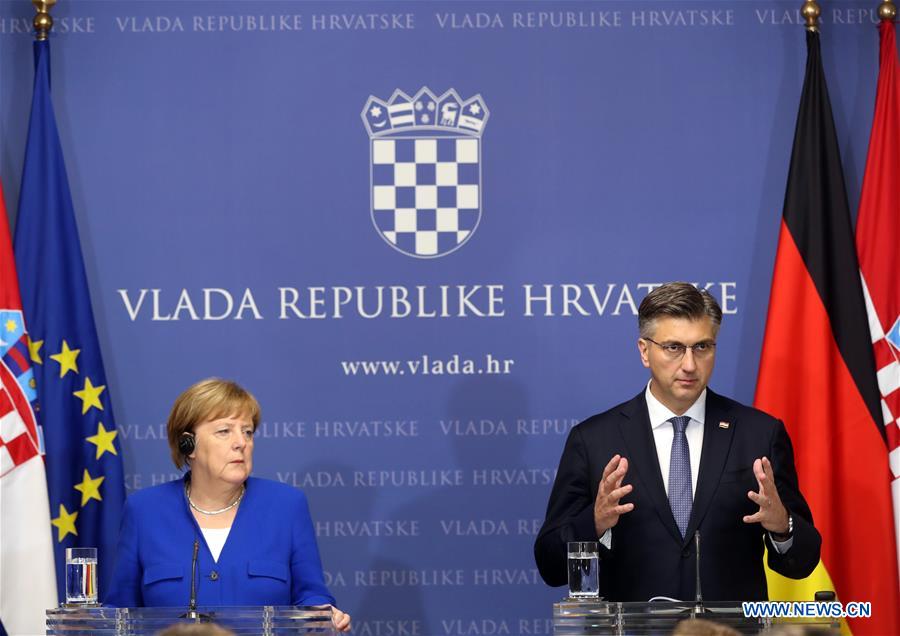 ?
?Croatian Prime Minister Andrej Plenkovic (R) and visiting German Chancellor Angela Merkel attend a press conference in Zagreb, Croatia, May 18, 2019. Croatia is on the right path to entry into the Schengen area and has the support of Germany, German Chancellor Angela Merkel said here on Saturday after a formal part of the talks with Croatian Prime Minister Andrej Plenkovic. (Xinhua/Robert Anic)
ZAGREB, May 18 (Xinhua) -- Croatia is on the right path to entry into the Schengen area and has the support of Germany, German Chancellor Angela Merkel said here on Saturday after a formal part of the talks with Croatian Prime Minister Andrej Plenkovic.
Merkel came to Zagreb together with Manfred Weber, the candidate of the European People's Party (EPP) for the next European Commission president, and participated in the election campaign of the Croatian Democratic Party (HDZ), which the polls predicts victory in the European elections in Croatia that will take place on May 26.
"Berlin basically supports the European perspective of the Western Balkan countries, but all countries have to meet the criteria," Merkel said.
Croatia and Germany will be chairing the European Union next year, and the two countries' diplomats will prepare a common strategy for EU enlargement to the countries of South East Europe.
"In Zagreb, at the beginning of next year, we will hold the Summit of the Southeast countries, which will discuss possible enlargement," Croatian PM said after bilateral talks with Merkel.
The German chancellor stands for a Europe without populism and commended Croatia for sharing the same values.
"There are those who despise our values and question the protection of minorities. We must act resolutely in this respect," Merkel said.
Economic cooperation between Croatia and Germany is satisfactory, commodity exchange amounts to 5.5 billion euros, and investments of German companies in Croatia are 3.3 billion euros, while 2.9 million German tourists annually visit Croatia.
At the EPP Election Congress in Zagreb, Merkel said she believed that this political group would take the European elections and that Manfred Weber would be the new president of the European Commission.